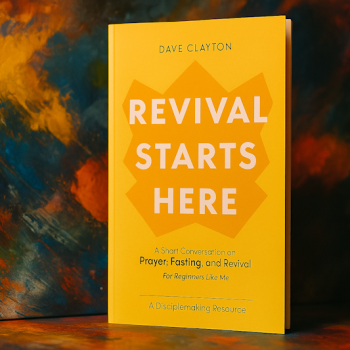
This week, I have been reflecting on a secondary wisdom of minding our own business in 1 Thessalonians 4:11-12. I got there looking at all the books I am reading. I have developed a troubling habit of diving into multiple books simultaneously. Dog-eared pages mark my progress books that rest on the stand next to my bed, other books litter my home desk, and even more, books are scattered across my workspace at the office. Additionally, the backpack that I take back and forth from work holds books with bookmarks that hold spots that are continually awaiting my attention. On top of these books, there are other books, required readings for both the Master in Business Administration program at City Vision University and the Doctor of Ministry program I am journeying through at Kairos University. Eventually I find myself making it a priority to just finish one book, and then the next. It seems when I focus on one at a time, I actually get through more faster.
The greatest enemy of good thinking is busyness.
While I have typically managed to juggle these various readings effortlessly, recently I have found myself struggling to maintain focus and get to finish any of these books. Is the problem time? Is the problem prioritizing? Either reason can be debated as blame at different times. The amount left to read can be overwhelming (and I won’t even talk about the “to read” shelf that is growing in my room and in my office). Recently, I have come to recognize how life, akin to my reading habits, can quickly become overwhelming, pulling my attention in various directions and causing distractions. I have come to the realization in my journaling and reflecting that with so much demanding my attention, in every involvement of life and in every arena I am involved, it is easy to feel disoriented and scattered. In the 360 Leader, Author John C. Maxwell remarks “The greatest enemy of good thinking is busyness.”
A secondary wisdom found in minding our own business.
This blog explores what it means to lead a quiet life. For me, leading a quiet life pursues what it means to lead a quieter life at a slower pace, to discover a simple life and faith that embraces downward mobility in a chaotic world and church obsessed with excess. This journey for me, and for this blog on Patheos, is rooted in 1 Thessalonians 4:11-12. In this passage, the Apostle Paul not only calls the Thessalonians (and consequently us) to lead a quiet life, but he calls them to “mind your own business” (1 Thessalonians 4:11); a passage that implores us to not be distracted by the workings, affairs, or problems of others. This verse acknowledges that there are things that are out of our control and they are not responsibilities that are in our lane.
As I realize how my life, much like my reading multiple book reading habits, can swiftly become overwhelming with so many areas of responsibilities to focus on. However, it’s not just the distractions and affairs of others that can cause us to not mind our own business. Sometimes busyness is more than just the amount of involvements I am invested in, but rather is from the many things pressing in on us. As I said above, this week, I have been reflecting on a secondary wisdom of minding our own business in 1 Thessalonians 4:11-12. This secondary wisdom is a realization that we can only focus on the responsibilities and tasks that lie within our sphere of control and/or influence at any given time.
Minding our own business orients us in the present.
There are twenty pressures on my life, including what-ifs, oughts, and should. Even more there is an awareness of what is coming down the pike. There might be only one or two things that I can actually address right here and now. Sometimes minding my own business means honing in on only those things we can address right here and now, concentrating solely on the tasks, obligations, and decisions that I have the power to influence in the present moment. It is the choice to read one book at a time, even though twenty are on the “to read” shelf. Minding our own business involves embracing a mindset of mindfulness and presence, where worries about the past or future are cast aside, and attention is anchored firmly in the present.
In Here and Now, Henri J.M. Nouwen writes that it is “hard to live in the present,” he offers that “the past and the future keep harassing us…the past with guilt, the future with worries.” Though, he says our worries are worst than our guilts, because “our worries fill our lives with “What ifs.” I don’t know about you, but the reason I don’t know how to live in the present is because of my worries, of which some are “what ifs.” Nouwen suggests though that “the real enemies of our life are the “oughts” and the “ifs”,” because they “pull us backward into the unalterable past and forward into the unpredictable future.” I am less and less worried about the workings and affairs of others, but I am increasingly struggling to live in the present because I feel the pressures and problems of life all around me. To this state of being Paul also might tell us, “Mind your own business,” the secondary wisdom of 1 Thessalonians 4:11-12 might call us to only focus on that which you can focus on here and now. As Nouwen suggests, “God is a God of the present. God is always in the moment, be that moment hard or easy, joyful or painful. When Jesus spoke about God, he always spoke about God as being where and when we are…He wants us to discover God right where we are, here and now.” This is why we practice Sabbath, as Ken Shigematsu writes in God in My Everything, “On Sabbath, choose to ignore the “oughts” and attend to what brings life” and ultimately closer to God.
Andrew Murray, the South African Teacher and Writer, once said “we are far more occupied with our work than we are with prayer.” However, I might even say that as distracting as our work and investments can be, the truth is that we are often equally far more occupied with our thoughts and the pressures of life than we are prayer. We need to mind our own business, in a way that we are not being consumed by a whirlwind of concerns and anxieties about things beyond our control. After all, this is why Jesus told us in Matthew 6:34, “Therefore do not worry about tomorrow, for tomorrow will worry about itself. Each day has enough trouble of its own.” Slow down. Embrace the unfinished and unresolved. Focus on what you can resolve today. This is what I find myself writing in my journal a lot lately.
Cultivating a sense of focus and accomplishment
I am learning that there are many things that are not right in my life, and many things that need resolved, but I must direct my focus and energy into the tasks and responsibilities directly in front of me that I can affect right now. By focusing on what I can affect right here, right now, I’ve found a sense of empowerment and clarity that eluded me when my attention was scattered across myriad worries and distractions. I am still learning how to hit the target on this one. I believe that instead of feeling overwhelmed by the enormity of my to-do list or the uncertainties of the future, minding my own business in this way will enable me to cultivate a deeper sense of purpose and fulfillment in my daily life. I want to embrace a sense of agency and efficacy in tackling each task as it arises.
To achieve what it means to “mind your own business” in this secondary fashion, there is wisdom in learning to utilize planners and to-do lists. By crafting a planner or daily to-do list centered solely on tasks achievable within the present day, we not only cultivate a sense of accomplishment but also hone our ability to focus solely on what we can handle in the moment. This intentional approach encourages mindfulness and prioritization, guiding us to direct our energy towards tasks within our immediate sphere of influence. By narrowing our focus to the tasks at hand, we alleviate the burden of overwhelming future concerns and distractions, allowing us to immerse ourselves fully in the present moment. It’s one book at a time. As we consistently tackle each item on our daily agenda, we build momentum and confidence in our ability to navigate life’s challenges with clarity and purpose, one step at a time.
Am I stretching Paul’s challenge?
Paul’s command to “mind your own business,” was truly a call to quit being busybodies with the affairs of others. I don’t mean to stretch Paul’s challenge and perform some theological eisegesis rather than exegesis. However, sometimes for some of us, our busyness is found in our pressures and problems, more than the affairs of others, and I think Paul would give us the same challenge. The word Paul uses to imply our own business, also does apply to knowing and attending to our own private and personal affairs. Often, this word is used (like in the Parable of the Talents in Matthew 25:15) to speak to the ability one has to focus on the work before them, the present responsbility in which they have. Taken with Paul’s encouragement in the next line to “work with your hands,” we properly might be able to say that minding our own business does include just focusing on that which we can put our hands on in the moment.
Closing Thoughts
In closing, as we navigate the complexities of life and strive to maintain focus amidst the multitude of distractions, let us heed the wisdom encapsulated in both Matthew 6:34 and 1 Thessalonians 4:11-12. Jesus reminds us not to worry about tomorrow, emphasizing the importance of living in the present moment and trusting in God’s provision for each day. Similarly, 1 Thessalonians urges us to “mind our own business,” directing our attention to the tasks and responsibilities within our sphere of influence, here and now. Together, these verses encourage us toward a mindset of focus, where worries about the future are replaced by a deliberate focus on the present, allowing us to find clarity, purpose, and fulfillment in our daily lives. As we embrace this perspective, may we discover the peace that surpasses all understanding, trusting in God’s guidance as we journey through each moment with intentionality and grace – a fruit of learning to mind our own business today, here and now.

















